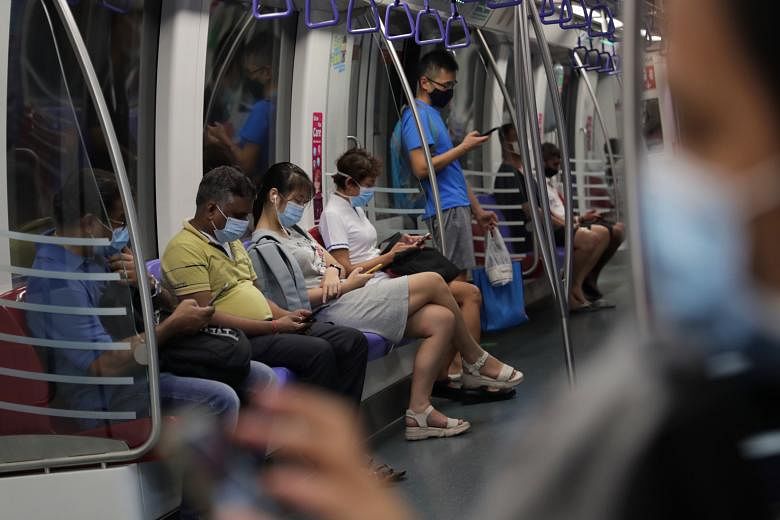Mobile telcos experienced a decline of 3.2 per cent in reported service quality in the first quarter of this year compared with last year, according to an annual study by the Singapore Management University (SMU).
Mobile phone users gave lower ratings on whether they felt their service provider took good care of their needs and had their best interest at heart.
Mr Chen Yongchang, head of research and consulting at SMU's Institute of Service Excellence, which conducted this survey, said the fall in ratings could be due to service issues, such as having problems reaching the call centre.
He also said new entrants tend to offer services that target issues faced by existing telcos and offer more attractive packages, such as unlimited data and higher rebates.
"This can raise the expectations of existing customers who may wonder why their own telcos are not able to offer the same," Mr Chen said.
A Singtel spokesman attributed the decline in mobile scores to movement restrictions and lockdowns at the firm's offshore contact centres due to Covid-19.
SMU's study involved 1,900 subscribers of various info-communications services between February and April. Among broadband customers, it found a marked decrease in the average number of services held with the same telco, including mobile and pay-TV, from an average of 2.4 last year to 1.6 this year.
Mr Chen said: "This is likely due to increased competition in the industry, with a large number of providers offering similarly priced services."
But Mr Johan Buse, chief of the consumer business group at StarHub, said the telco's all-in-one HomeHub Plus with Netflix bundle has seen strong take-up since its March launch.
He added that the annual percentage of customers who cancelled their subscriptions remained low across all lines of business.
Similarly, Singtel said it has seen no discernible change in the number of customers using multiple services.
M1 did not directly respond to questions The Straits Times asked about service quality and bundle subscriptions, but gave a general statement that the survey found an increase in its Customer Satisfaction Index by 1.9 per cent compared with last year.
SMU said yesterday that another survey it conducted through online survey panels, involving 2,579 customers of department stores, e-commerce, fashion apparel and supermarkets, found that customers who had researched a product online before purchasing it at a brick-and-mortar store rated their willingness to repurchase from the same store 9.4 per cent higher than those who did not.
For department stores, customers spent an average of $148 more after researching the products online before purchasing them at physical stores.
Mr Chen said customers who had done their research online could have developed greater loyalty for the brand after comparing prices and quality of goods offered with those of other retailers.
Institute of Service Excellence executive director Neeta Lachmandas said: "This dispels the notion that online shopping is a threat to traditional stores."
She added that during the ongoing Covid-19 pandemic, companies can leverage such buying behaviour to provide an alternative to shopping at a physical store.


